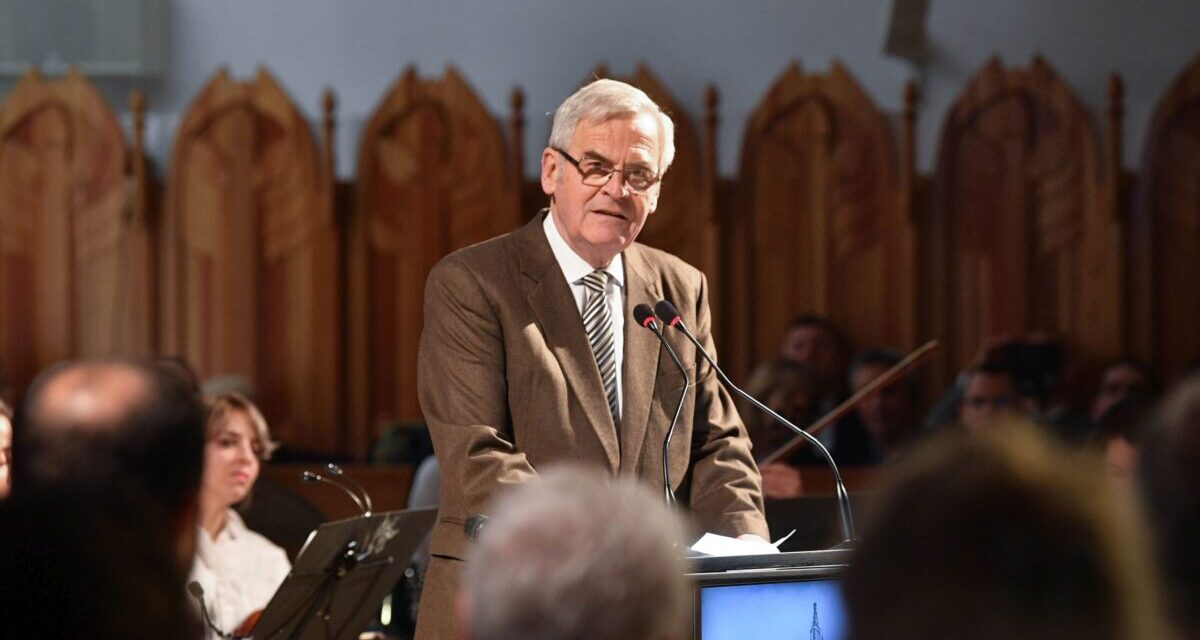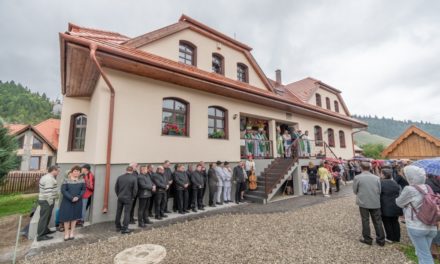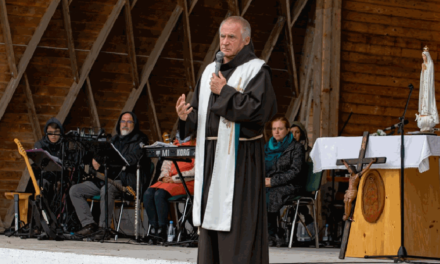The people of Timisoara, belonging to nearly ten nationalities and the same number of religious denominations, became the leaven of the revolution and freedom struggle covering the entire country in an exemplary unity of diversity, announced the president of the EMNT.
According to László Tőkés, the popular uprising in Timișoara that led to the overthrow of the communist regime in Romania, which broke out 35 years ago, developed out of Hungarian-Romanian solidarity, and the spirit of Timișoara obliges him to stand up for the cause of Hungarian-Romanian reconciliation even today.
The president of the Transylvanian Hungarian National Council (EMNT) - a former priest in Timisoara who openly criticized the Ceausescu dictatorship - recalled the former gala evening of the three-day commemoration organized by the Reformed parish on the occasion of the 35th anniversary of the revolution that started in front of the Reformed parish. common struggle against communist tyranny.
"I thank those who came to our church at that time and stood by us when I called them, and when I sent them home out of fear and love for them, they did not leave (...) they did not back down, and in this way we became instruments of God's saving grace in overthrowing the Ceausescu regime and in the pursuit of freedom. The people of Timisoara, belonging to nearly ten nationalities and the same number of religious denominations, in an exemplary unity of diversity, thus became the leaven of the revolution and freedom struggle that would soon extend to the entire country," emphasized László Tőkés.
According to him, the fact that Romanians and Hungarians found each other in Timisoara in 1989, facing the divisive policies of the Ceausescu regime and the infamous Securitate - the communist political police, thus creating the long-awaited possibility of Romanian-Hungarian national reconciliation.
However, this "elevated state of understanding and the search for peace" was shattered three months later by the "Black March" of Marosváráshely, an attempted pogrom organized on the basis of the Securitate scenario, the EMNT president recalled.
"What we once started, returning to the beginning, we must continue in the same place. One of the biggest crimes of the successor communist regime, marked by the name of Ion Iliescu, was that it ran aground on the cause of Romanian-Hungarian reconciliation. Our task, on the other hand, is to carry out the change of the minority political system in Romania and the historical reconciliation between our nations", stated László Tőkés.
The president of the EMNT assessed it as follows: during the current advance of extreme Romanian nationalism, it is necessary to stand up for the communal rights of Hungarians and the cause of Romanian-Hungarian reconciliation without retreating, even more firmly than before.
Emil Constantinescu, the former president of Romania (1996-2000), spoke about the power of faith that overthrew humanity's cruelest dictatorships, communism. This also happened in Timisoara in 1989, where the Ceasescu regime sent tanks in vain against the insurgents who pledged solidarity with László Tőkés.
He said: when he asked the post-communist head of state Ion Iliescu whether he believed in God during the presidential election campaign, he did so not as a campaign trick. According to him, a person who believes that there is no authority over him and does not have the humility to fulfill his position with humility is unfit to lead the country.
Dominic Fritz, the mayor of Timisoara with German citizenship, believed that the people of Timisoara have a duty to preserve and pass on to the next generations those characteristics of Timisoara that contributed to the outbreak of the 1989 popular uprising in this city. The mayor listed the love of freedom and openness characteristic of the city's residents among these.
On the occasion of the 35th anniversary of the uprising, the series of commemorations organized by the Integratio Foundation, the Transylvanian Hungarian National Council, the New Millennium Reformed Parish and the Timisoara-Belvárosi Reformed Parish will end on Sunday.
Following the laying of wreaths at the memorial plaque marking the iconic location of the outbreak of the revolution, a festive service was held in the Reformed Church of Timisoara-Downtown, where László Tőkés preached. After that, the Tőkés family's book entitled "The family is strong (also)" was also presented.
MTI
Cover image: Former bishop László Tõkés, president of the Transylvanian Hungarian National Council (EMNT), delivers a speech on the occasion of the 35th anniversary of the 1989 popular uprising at the gala evening held at the New Millennium Reformed Center in Timisoara on December 14, 2024.
Source: MTI/Noémi Bruzák













